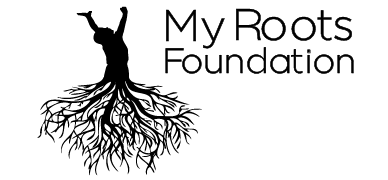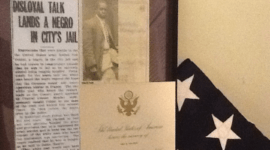06 Feb
2016
Resources for African American Research
Alonzo’s Guide
for African American Research
Why? Because your research can hit a wall at the 1870 census!
Research into the past lives of African Americans can present challenges due to the institution of slavery. Because slavery classified people of African ancestry as property and livestock instead of as people, census records can be spotty at best when it comes to tracing the family lines of particular individuals. Records are much more difficult to find due to the scant nature of record keeping for blacks prior to the Civil War. This is because in US Census records, from 1790-1840, only the names of the white heads of households were listed, along with the number of slaves and “free persons of color.” In 1850 and 1860, the Federal government took a supplemental slave census. This schedule gave the slave owner’s name, and the number of slaves by gender, age, and a designation of black or mulatto. The names of all free blacks were included in the 1850 and 1860 census. Beginning in 1870, the census listed the names of all African Americans.
The Trans-Atlantic Slave Trade Database at https://www.slavevoyages.org/tast/index.faces has information on more than 35,000 slave voyages that forcibly embarked over 12 million Africans for transport to the Americas between the sixteenth and nineteenth centuries. It offers researchers, students, and the general public a chance to rediscover the reality of one of the largest forced movements of peoples in world history.
A rich source for beginning your search is the American Ancestors by New England Historic Genealogical Society website at https://www.americanancestors.org/education/learning-resources/read/african-american-research including links to:
- Reconstruction Era Documents
- Freedmen Bureau Records
- Census Records
- Land, Probate, and Account Records
- Manumission Documents
- Church Records
- Black and American Indian Connections
- Caribbean Ancestry
- Military Records
Links for the “US—Freedmen’s Bureau” project listing can be found at https://familysearch.org/african-american-genealogy
Another good resource to start your search for Free African Americans is Paul Heinegg’s website, “ Free African Americans of Virginia, North Carolina, South Carolina, Maryland, and Delaware.” The site compiled information from tax lists, registry lists, wills, deeds, and other records on free African Americans prior to the passage of the Thirteenth Amendment.
Another full source is African American and General genealogy websites is the list at: https://www.blackpast.org/african-american-history-genealogy#sthash.L5iJIObH.dpuf
AfriGeneas at https://www.afrigeneas.com/ is described as the granddaddy of African-American genealogy sites. There are more than 30 forums to post messages, including Slave Research, Caribbean Research and Free Persons of Color. You can find the site on Facebook, Twitter, MySpace and YouTube. The interactive Guide for Beginners lays out the basics of black-genealogy research on the Internet.
Another excellent resource is the University of North Carolina’s site of North American Slave Narratives:
https://docsouth.unc.edu/neh/
Christine Charity’s site Christine’s Genealogy Website at https://www.ccharity.com/ updates visitors with the latest in African-American genealogy, with links to news stories and contributions from researchers. Check the site often for updated Searchable Data and Transcribed Data.
Cyndi Howells has compiled thousands of genealogy-related links on her mega-site since 1996. See Cyndi’s List of Genealogy Sites on the Internet (African American Category at https://www.cyndislist.com/african-american).
For a more regional resource be sure to check out Free African Americans of Virginia, North Carolina, South Carolina, Maryland and Delaware: Creator Paul Heinegg describes the site this way: “The history of the free African American community as told through the family history of most African Americans who were free in the Southeast during the colonial period.” It contains the content of two books that chronicle family histories based on microfilm materials available at the archives of those five states. Visit the site at https://www.freeafricanamericans.com/
HeritageQuest Online at https://www.proquest.com/en-US/catalogs/databases/detail/heritagequest.shtml is described as “a comprehensive treasury of American genealogical sources — rich in unique primary sources, local and family histories, and finding aids,” this site provides free access through most public libraries to the census, Freedman’s Bank records, the Periodical Source Index (PERSI), genealogy and local history books, Revolutionary War records and the LexisNexis U.S. Serial Set. Contact your local library to see if you can access the site with your library card number.
Lowcountry Africana: Research is limited to Florida, Georgia and South Carolina. The site has its own freestanding research aids, including a custom search engine, an online research library, videos, articles about research methods, and search capabilities for user-submitted documents. Note: As of this posting the site appears to be hacked. Do a Google search of “Lowcountry Africana” first to see if you get a message that the site appears to be hacked. If so wait until the message disappears before entering it.
African American Records at https://www.archives.gov/research/african-americans/ contains many useful and interesting resources such as Pre-Civil War Records. African American historical research can be undertaken in both military and civilian records; however, the documentation is scattered through a variety of correspondence of government and private citizens and government reports. One’s success in researching African-American ancestry in the years prior to the Civil War will depend largely on what one’s status was, slave or free. Slave records are difficult to locate and found rarely at NARA.
The links at https://www.accessgenealogy.com/black-genealogy provide another great online source of African American genealogy.
But wait; there’s more!
When you’re ready for a road trip or want to gather more local finds, please be sure to visit the African American Museums Listings at https://myrootsfoundation.com/aahistory/african-american-museums/
Want to see what you’re made of?
DNA Testing Resources
If you want to find out the percentage of African ancestry in black Americans, there are resources to help. You can find out your regional genetic composition via the following companies which offer admixture tests:
To compare each service side by side, check out https://www.innerbody.com/dna-testing/best-dna-ancestry-test.
More Resources (not just African American)
Thanks to the students of Ms. Phillips and Ms Reynolds of The After School Care Program for recommending we add the following resources to our page!
History at Home: A Guide to Genealogy




Florida
on
Keep this going please, great job! weblib.lib.umt.edu